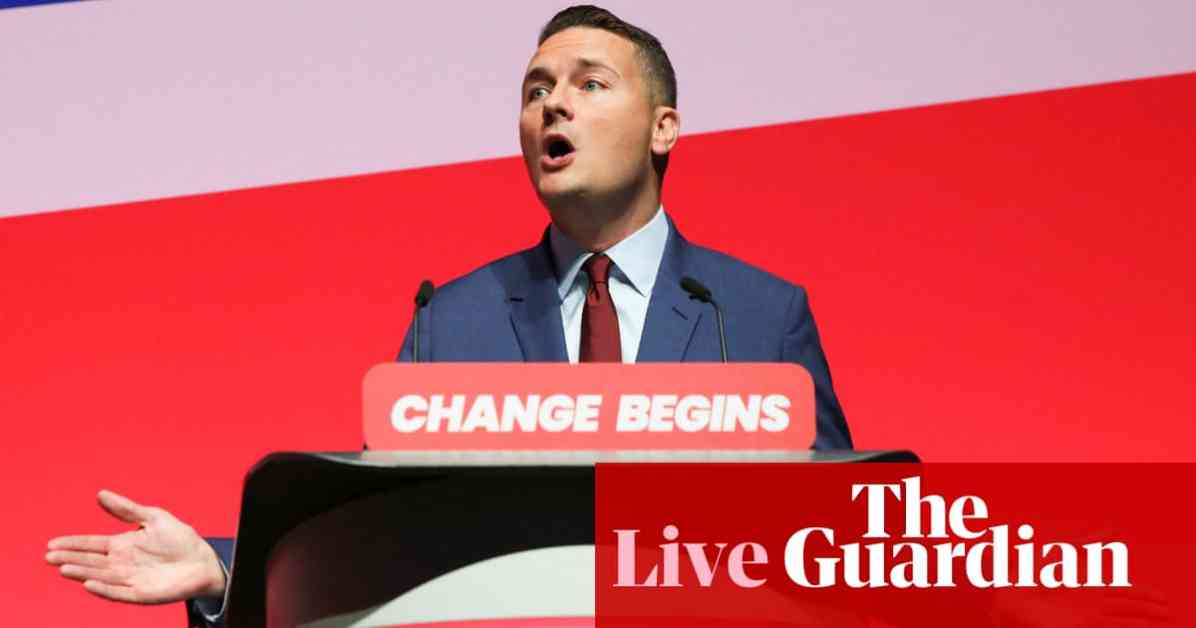Streeting Defends Decision to Highlight NHS Failings Despite Report Warning of Patient Concerns
Wes Streeting, the health secretary, stood by his choice to release a report from Lord Darzi that outlined significant issues within the NHS. Describing the findings as “grim,” Streeting emphasized the importance of receiving an accurate diagnosis in order to provide the correct prescription. He stated, “I know the doctor’s diagnosis can sometimes be hard to hear. But if you don’t have an accurate diagnosis, you won’t provide the correct prescription.”
However, concerns have been raised within the NHS about Streeting’s decision to label the NHS as broken. Some officials worry that this negative messaging could deter patients from seeking care and could impact staff morale. Streeting did not directly address these concerns in his speech but emphasized the importance of a doctor’s diagnosis as a rebuttal.
Despite criticism, Streeting reiterated his stance that the NHS is facing significant challenges that need to be addressed. He highlighted the potential for the NHS to leverage advances in genomics and data to deliver more predictive, preventative, and personalized healthcare. Streeting emphasized the need for a universal health service that can share data, partner with innovators, and adopt new technologies to benefit all patients.
In his speech at the Labour conference, Streeting also outlined plans to prioritize areas with high rates of economic inactivity to reduce NHS waiting lists. Top clinicians will be deployed to hospitals to implement reforms and expedite patient treatment, with a focus on improving operational efficiency and reducing waiting times.
While Streeting’s focus on addressing NHS failings has garnered attention, he also emphasized the importance of ensuring equal access to healthcare choices for all patients. He stressed the need for working people to have the same options as the wealthy when it comes to healthcare, highlighting the Labour Party’s commitment to providing quality services to all individuals, regardless of their socioeconomic status.
Amidst discussions about the NHS and healthcare reforms, union delegates at the Labour conference staged a protest against the government’s decision to cut winter fuel allowance. Members of Unite gathered outside the conference hall to voice their opposition to the cut, calling for the government to reverse its decision and restore the allowance to pensioners.
Keir Starmer, the leader of the Labour Party, also weighed in on the debate surrounding long-term benefit claimants, emphasizing the importance of supporting individuals to re-enter the workforce. He acknowledged the need for individuals to look for work if they are able, while also highlighting the necessity of providing adequate support for those transitioning back to work after a period of illness.
As the conference continues, Starmer has faced questions about his decision to accept donations and gifts during the election period. He defended his actions, explaining that he accepted accommodation to ensure his son could focus on his exams without disruption from journalists. Starmer also addressed the issue of accepting clothing donations and tickets to football matches, emphasizing the need for transparency and accountability in political practices.
Overall, the discussions at the Labour conference have highlighted the complexities of healthcare policy, the challenges facing the NHS, and the importance of addressing patient concerns while striving for improved healthcare outcomes for all individuals. Streeting’s defense of highlighting NHS failings underscores the government’s commitment to transparency and accountability in addressing healthcare challenges and implementing necessary reforms to improve patient care and access to services.












